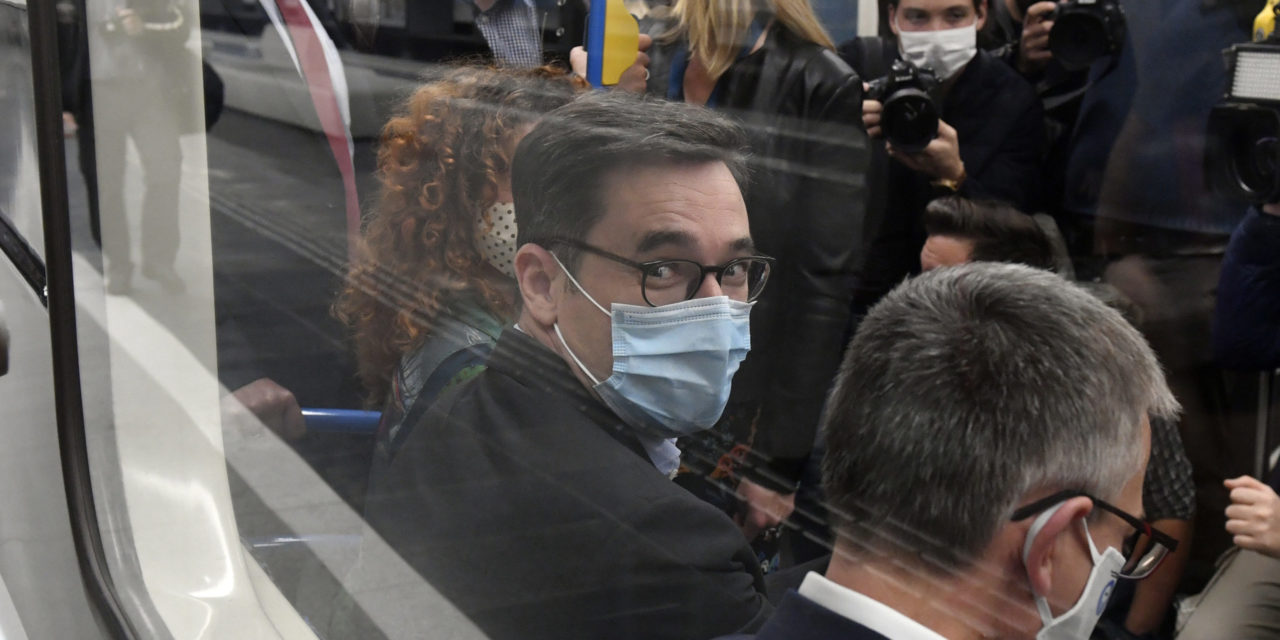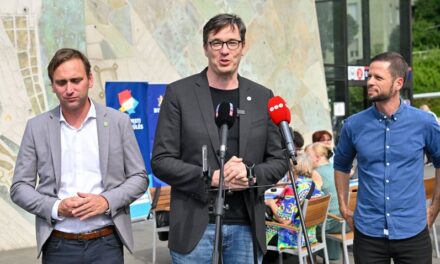From September, the Budapest city administration will liquidate the operating model governing the capital's traffic, the Budapest Közút Zrt, which until then was operating as a subsidiary company, will be completely separated from the Budapest Transport Center (BKK). According to Világgazdaság, the City Hall managed by Gergely Karácsony is destroying the previous operating model just when it is urgently needed. would be for a unified system controller.
They didn't beat a big drum, but at the end of June, the Capital Assembly decided on an important, if you like, milestone company transformation. Nearly forty motions were put on the agenda, including the one put forward by Mayor Gergely Karácsony on the approval of the 2022 consolidated annual report of the Budapest Transport Center (BKK) Zrt.
However, a few lines at the very end of the ten-page presentation included an additional change:
Budapest Közút Zrt., which had been operating as a subsidiary until then, will be completely separated from BKK, and the general meeting gave its nod to this.
With this, the city administration reached out to a decades-old structure surrounded by professional consensus, not necessarily in a good direction.
The Capital Assembly decided by the deadline of the end of September that the Budapest Közút will be removed from the BKK and transferred to the direct ownership of the Capital Municipality. The company has been owned by BKK since the beginning of the 2010s.
The city administration has now justified the move by saying that the division of tasks between the two companies will become more reasonable and the management relationships will become more efficient. It was specifically emphasized in the decree that it is necessary for a company to concentrate the tasks related to taxis together with the equipment and human resources. They did not name which company would supervise the taxi service in the future, Budapest Közút or BKK, but due to the way the reorganization is taking place, it is perhaps more logical that it will fall under the competence of Budapest Közút. According to the explanation, by placing the taxi business in one hand, the performance of the public task will be more efficient, and the administration will be substantially simpler. All this serves to reduce administrative burdens and facilitate entry into the market.
However, the decision also shows that the former BKK subsidiary Budapest Közuta will be made an equal partner of BKK. For example, the relevant proposal states that issues of strategic road management tasks are regulated by the cooperation agreement between BKK and Budapest Közút, approved by the owner.
So far, not too much has been revealed about the reasons for the transformation. The justification states that BKK's internal audit report regarding the division of tasks between BKK and Budapest Közút made findings that the current ownership and contractual structure between the two companies contains internal contradictions.
Referring to this, Gergely Karácsony suggested that the general assembly make a principled decision on the spin-off or mixed merger of Budapest Közút Zrt., so that instead of BKK, it would be directly owned by the Metropolitan Municipality. The mayor also drew attention to the fact that the task review and profile cleaning should be done in such a way that it does not affect the fundamental character of the two companies.
Part of the overall picture is that the separation of BKK and Budapest Közút is not a new experiment, but no city administration has gone this far in this process. The company was founded on September 30, 2011, after it was separated from Fővárosi Közterület-fenntráto Zrt. For years it was called BKK Közút, then from January 2016 it took on the name Budapest Közút, which is still used today. At the time, this was not the only innovation at the company, as it was also decided that instead of BKK, Budapest Közút would perform the operational road management tasks. It was established that the BKK should primarily be present as a transport organizer in the capital's integrated city management model.
This time, however, the city hall not only curtailed the scope of BKK's tasks, but also liquidated the previous ownership relations, which goes directly against the original philosophy that created BKK at the time.
The company was launched by the Capital Municipality back in 2010 as Budapest's comprehensive, integrated transport organizer and competence center for transport professionals.
With this step, he transferred the tasks related to the transportation of the capital to BKK. The advantage of this was that it was able to deal with public roads, public transport, public spaces, and taxi services at the same time, and thus a coherent, interdependent transport organization and management could be realized.
Now, when international trends clearly prove that the so-called micro-mobility devices, such as scooters, are multiplying like mushrooms, or that the unified transport organization is being valued due to the exclusion of the Lánchíd from private transport, in Budapest decisions are being made that are just the opposite, and the BKK is retaliating your driving licences. However, the goal would be for all types of available mobility services to operate under one supervisory umbrella, as part of an integrated system. That is why it was a huge advantage for the Hungarian capital that BKK, ahead of its time, started its activities even when it could stand at the forefront of these processes.
Time proved that the BKK model was correct.
Many large European cities are now struggling to somehow organize the new and new private service providers and their thousands of platforms. All this causes problems in Budapest as well, but BKK would be able to bring the various services under a public system controller. However, this will certainly not work if the capital's leadership sees contradictions in the existence of BKK and therefore sets out to destroy the company's framework, read Világgazdaság .
Source: hirado.hu
Featured image: Photo: MTI/Zoltán Máthé












